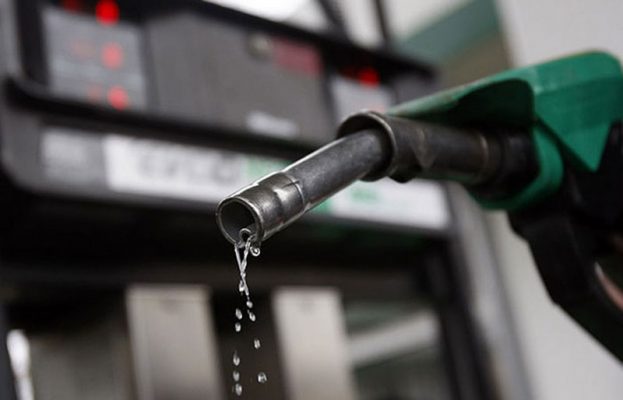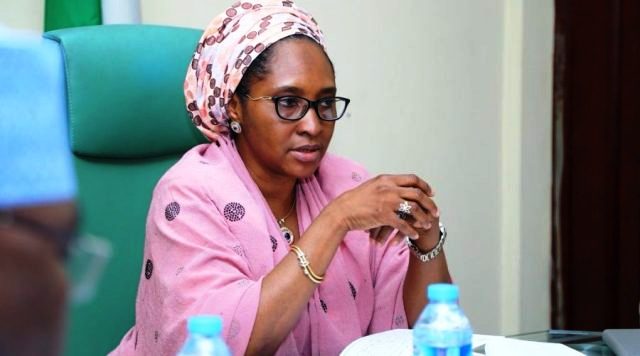… as Reps vow to unearth them
The House of Representatives Ad-hoc Committee investigating subsidy regime payments from 2013 to 2022 has said that the profiles of 23 oil companies trading in Nigeria were missing from Corporate Affairs Commission, CAC portal.
The Chairman of the Committee, Hon. Mustapha Ibrahim Aliyu, at the resumed hearing of the investigative hearing on Wednesday told the oil companies in attendance to explain their role in the deal with the Nigerian National Petroleum Company, NNPC Limited .
Aliyu read a list containing the name of the individual companies explained that a communication from the Corporate Affairs Commission (CAC), on the request of the committee came back without any information on the affected companies.
He said that they have serious questions to answer, as the Committee will write to the embassies of the companies which were mostly expatriates to provide the details of their profiles.
The letter with Ref. RGO/SU/VOL.5/2022/0248 dated 13TH July, 2022 signed by Maimunat Hamu. M on behalf of Register-General, read as follows “Kindly refer to your letter Ref: NASS/QHR/AHC/PPSRIM1/1H/01/051 dated 1st July, 2022 on the subject matter above.
“Please be informed that we could not readily find information on the exact name of the following companies as provided in our record.
“Emadeb Consortium; Britania-U Nig. Limtted; Totsa Total Ol Tradings SA; Petroleum Trading Nigeria Limited; Mocoh S.A; Socer Worldwide; Calson Bermuda Ltd; Hyson; Litasco S.A; Mercuria Energy; Cepsa Lubricant; Trafigura Pte; Vitol S.A; Ocanbed Trading Limited; Bonno Energy; West Africa Gas Limited; Petrogas; Matrix; Masters Energy; Amg; Barbedos; Hindustan and Patermina.
“However, you may wish to provide the registration numbers or any other available documents at your disposal to enable us investigate further.
“Kindly accept assurances of the Registrar General’s highest regards”, the letter reads.
Similarly, another letter with Ref: NASS/9HR/AHC/PPSR/14/iH/01/051 dated 1st July, 2022 and our previous response with Ref RGO/SU/VOL.5/2022/0248 dated Wednesday 13″ July, 2022 on the subject matter also read by the Chairman had names of other oil companies who were to appear before the committee.
“Please find attached five copies each of certified true documents and a flash drive in respect of the following companies”, the letter reads.
They included Heyden Petroleum Limited RC: 433175; Graton Oil Limited KC: 644074; Duke Oil And Gas. Limited RC; 64456145; Matrix Energy Limited RC: 612026; MRS Companies Limited RC: 241,013; Sahara Trade Nigeria Limited RC: 352,443; Essar Exploration And Production Limited RC: 692910; Sahara Group Limited RC: 668626; Rainoil Limited RC: 257,444; Casiva Limited RC: 1091598; Petroleum Traiding And Supplies Company Limited RC: 506113; Napo Oil Limited RC: 333,354; Calson (Nigeria) Limited RC: 121, 474; A. A. Rano Nigeria Limited RC: 399320; JKR Maritime Oil & Gas Limited RC: 1166636; BP Oil development & Energy Services Limited RC: 1506132; A.A Rano Lubes Limited RC: 1531528; Starco Energy Trading Nig Ltd RC: 1135491; A.Y. Maikifi Oil & Gas Company Ltd RC: 973914 ;The Shell Petroleum Development Company Of Nigeria Limited RC: 892; Oando Oil Limited RC: 427325; A.Y.M. Shafa Limited RC: 296,875
“We shall revert to you on the following companies as soon as we conclude our findings: Hyde Energy; Varo Energy; Eni-Trading; Levene Energy.
“We could not readily find information on the exact name Petroleum & Gas Company Ltd in our record. However, you may wish to provide the registration number or any other available document at your disposal to enable us investigate further.
“Kindly accept, assurances of the Registrar General’s highest regards. Yours, faithfully, Maimunat Hamu. For: Registrar-General”, the letter read.
In his remarks, Hon. Aliyu said there will be questions to answer.
“This Committee wrote to the Corporate Affairs Commission, CAC, requesting the commission to avail it with information on the following companies, about 57 companies. The commission wrote as follows: I read two letters that they have sent to us.
“I will like to direct the NNPC to provide detailed profile of these companies. At this juncture, I say that all those companies that were invited to appear before this Committee should make their profile as part of their submission. And take this to be part of the requirements for submission before this honorable committee. Those company the commission couldn’t find their profile, they will have a lot of questions to answer particularly, NNPC.
“This Committee will also write to their commercial desks of their various embassies if they are expatriates so that we can have full data of them”, he said.
Earlier, the Committee quizzed the representatives of Sahara Energy Resources, Oando Plc, Hyde and AA Rano where they took turns to explain contract deals with the NNPC, saying they only lifted crude and were not part of the subsidy payments.









